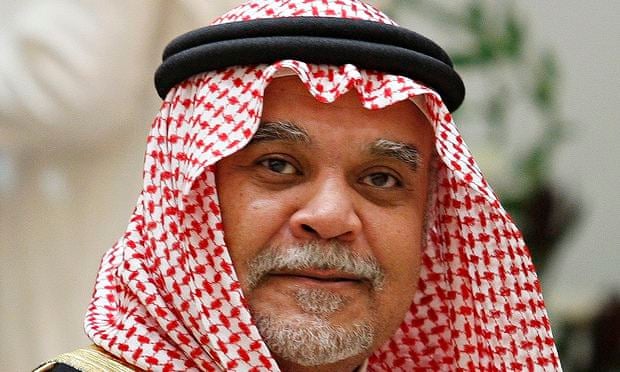One week into his reign, Saudi Arabia’s new king announced a major government shakeup, catching insiders by surprise and consolidating his hold on the throne
The Guardian
One week into his reign, Saudi Arabia’s new king has reshuffled senior government officials, catching insiders by surprise and starting a “Kremlinology”-style dissection of what the new names mean for policy and direction.
With a series of royal decrees issued late on Thursday, King Salman bin Abdulaziz Al Saud has consolidated his hold on the throne with a number of senior appointments that could take the country in a new direction.
Among the most significant of the 30 new names is Adel al-Teraifi, who has been named information minister after being plucked from the secular Dubai-based TV channel, al-Arabiya. Teraifi has a Phd from the London School of Economics and an outlook that is at odds with the clerical establishment, which is prominent in Saudi affairs.
An adviser to the royal court suggested that the appointment of Teraifi was a nod to a need for the kingdom to be more responsive to criticism and inclusive of demands from a younger generation ever more accustomed to fast-paced news and information.
Key security officials have also been changed. Removed from any role is the once powerful Prince Bandar bin Sultan, a former intelligence chief and ambassador to the US, who was long hailed for his links to Washington, but had fallen from grace in the past year over the perceived failure of his Syria policy.
New committees have been set up to oversee security and political affairs. King Salman also fired two sons of the late monarch, King Abullah: Prince Mishaal, who acted as governor of Mecca, and Prince Turki, who ran Riyadh province.
To the relief of markets around the world, the kingdom’s oil and foreign ministers remain unchanged. The decision to keep the ministers in place is being widely interpreted as a sign that the new king has given both ministries a “business as usual” mandate.

King Salman earlier in the week suggested there would be no major change to Saudi Arabia’s direction. However, with an estimated 60% of Saudi citizens under the age of 21, he is known to fear the demands of a new generation. Equally troubling for the 79-year-old monarch is growing regional turmoil, in particular the increasing presence of the Islamic State (Isis) terror group, which partly draws its legitimacy from a hardline reading of Islam espoused by some Saudi clerics.
Since its inception as a nation state, the House of Saud has had an accommodation with the clerical establishment, which allows it to run the affairs of state in return for clerics defining the national character.
Throughout the 83-year history of the modern state, rulers have been resistant to western demands for reform and Salman has vowed no major change in approach. “We will continue adhering to the correct policies that Saudi has followed since its establishment,” he said in a nod to the clerical leaders.
However, Salman has also said that his late half-brother’s cautious reforms – seen as painstaking and begrudging by critics – were necessary and should continue. Dissent remains severely limited throughout the kingdom, as do women’s rights and freedom of expression. Human rights officials say the appointment as deputy crown prince of Mohammed bin Nayef – who drove many of the hardline stances – showed that real reform was not on the new agenda.
As evidence of that, Amnesty International pointed to mooted pardons announced by King Salman for “public rights” convictions, which would be determined by the interior minister.
“This is akin to the fox guarding the henhouse,” said Philip Luther, Amnesty’sMiddle East and North Africa programme director. “Since the ministry of interior has been the main authority implicated in silencing activists and imprisoning them in the first place.”

No comments:
Post a Comment